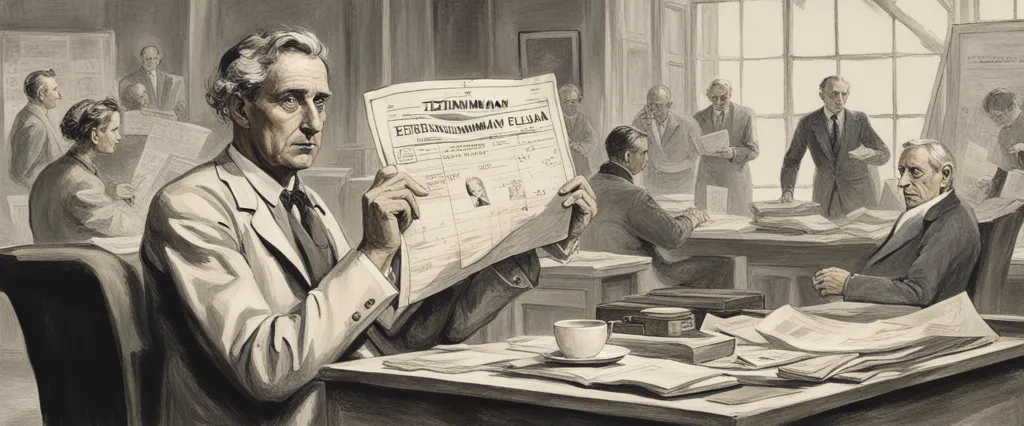——The Zimmermann Telegram by Barbara W. Tuchman & When Books Went to War by Molly Guptill Manning

In the realm of historical non-fiction, numerous books shed light on pivotal events and their impact on society. Barbara W. Tuchman’s “The Zimmermann Telegram” and Molly Guptill Manning’s “When Books Went to War” stand out as two captivating works that delve into different aspects of war and its consequences. While each book examines a distinct period and emphasizes different facets of conflict, an exploration of their narratives reveals compelling similarities and differences. As we embark on a comparative study, it is important to recognize the contextual framework that encompasses these two books, their unique contributions to history, and the overarching themes they address.
Brief Summary of Two Books
The Zimmermann Telegram by Barbara W. Tuchman
“The Zimmermann Telegram” by Barbara W. Tuchman is a non-fiction book that delves into the events leading up to America’s entry into World War I. The book focuses on the infamous telegram sent by German Foreign Secretary, Arthur Zimmermann, to the German ambassador in Mexico in January 1917. The telegram revealed Germany’s plan to form an alliance with Mexico against the United States in the event of America’s involvement in the war.
Tuchman begins by providing historical context, describing the global situation as the war intensifies. She then explores the diplomatic relations between the United States, Germany, and Mexico. Tuchman emphasizes the strained relationship between America and Germany, as well as the ongoing tensions at the US-Mexico border.
The book goes on to detail the history of the telegram, its interception by British intelligence, and the subsequent decision to leak its contents to the American government. Tuchman showcases how the telegram, with its explicit proposal of a Mexican-German alliance, shocked and outraged the American public.
She further examines the political climate in the United States at the time, where President Woodrow Wilson was attempting to maintain neutrality but faced mounting pressure from the public and certain political figures to take action. Tuchman highlights how the disclosure of the Zimmermann Telegram became a critical turning point, pushing public sentiment towards supporting the US entry into the war.
Tuchman explores the reactions of various influential figures upon learning about the telegram, including President Wilson, his advisers, and members of Congress. She also examines the role of the media in shaping public opinion and the subsequent declaration of war by the United States against Germany.
“The Zimmermann Telegram” concludes by discussing the implications of the telegram’s disclosure and America’s entry into World War I. Tuchman reflects on how this event shifted the balance of power during the war and ultimately influenced the outcome.
Overall, Tuchman’s book provides a detailed account of the events surrounding the Zimmermann Telegram and sheds light on its significance in shaping America’s involvement in World War I.
When Books Went to War by Molly Guptill Manning
“When Books Went to War” by Molly Guptill Manning tells the remarkable story of how books played a crucial role in boosting morale among American soldiers during World War II. The book explores the creation and implementation of the Armed Services Editions (ASEs), small paperbacks specifically designed for soldiers.
Through extensive research and interviews, Manning paints a vivid picture of the challenges faced by the Armed Services Editions program. Initially met with skepticism and resistance, the program eventually gained support due to the efforts of librarians, publishers, authors, and government officials who recognized the power of books to uplift and distract soldiers during their long days of battle.
Manning discusses the process of selecting books for the ASEs, which required a careful balance between entertaining genres and more substantial literary works. She highlights the impact of these books on soldiers, describing how reading created a temporary escape from the hells of war and provided a source of solace and inspiration.
The book also delves into the logistics of distributing millions of books to soldiers stationed around the globe. Manning emphasizes the importance of the ASEs in fostering a sense of intellectual curiosity among soldiers, which continued long after the war ended.
Furthermore, “When Books Went to War” examines the lasting effects of the ASE program on both the publishing industry and American society. It reveals how the soldiers’ newfound love for reading led to a surge in book sales after the war and sparked a lifelong appreciation for literature.
Overall, “When Books Went to War” is a captivating and meticulously researched account of a little-known aspect of World War II history. Manning sheds light on the profound impact that books had on the morale and resilience of American soldiers, while also highlighting the transformative power of literature.
Comparison between Two Books

Similarities in History Of Wars
The Zimmermann Telegram by Barbara W. Tuchman and When Books Went to War by Molly Guptill Manning both explore different aspects of history during times of war. While they focus on different wars, they share similarities in shedding light on the experiences and consequences of warfare.
1. Historical Context: Both books delve into specific historical events and their impact on the course of wars. Tuchman’s The Zimmermann Telegram centers around World War I and the infamous telegram sent by Germany to Mexico, which influenced the United States’ entry into the war. Manning’s When Books Went to War discusses World War II and the efforts made by the American government to distribute books to soldiers.
2. Importance of Communication: Communication plays a significant role in both books. Tuchman’s book highlights the pivotal role that intercepted communication played in shaping the course of World War I. Manning’s book emphasizes the power of books as a means of communication during World War II, enabling soldiers to connect with one another and find solace in literature.
3. Influence of Propaganda: Propaganda is a common theme in both books. Tuchman explores how the Zimmermann Telegram was leaked and its impact on public opinion, helping sway public sentiment in favor of American involvement in the war. Manning’s book explores the use of books as propaganda tools during World War II, with the American government selecting specific works to promote patriotism and boost morale among soldiers.
4. Societal Impact: Both books highlight the broader societal impact of war. Tuchman’s book discusses the reactions of the American public to the Zimmermann Telegram and how it increased anti-German sentiment, contributing to the war effort. Manning’s book examines the impact of books on soldiers, providing them with a sense of escape, entertainment, and comfort amidst the chaos of war.
5. The Human Experience: Both books offer glimpses into the human experiences during war. Tuchman’s narrative presents the political machinations and diplomatic contexts surrounding World War I, while also exploring the emotions and motivations of key figures involved. Manning’s book provides accounts of soldiers and civilians affected by World War II, showcasing the power of books to uplift spirits and provide an escape from the harsh realities of war.
In summary, The Zimmermann Telegram and When Books Went to War share similarities in their examination of historical events, the importance of communication, the influence of propaganda, the societal impact of war, and the experiences of individuals during times of conflict. Both books shed light on various facets of the history of wars, albeit from different perspectives and contexts.
Divergences in History Of Wars
Both “The Zimmermann Telegram” by Barbara W. Tuchman and “When Books Went to War” by Molly Guptill Manning offer unique perspectives on different aspects of war history. While Tuchman’s book focuses on a specific event during World War I, Manning’s work delves into a lesser-known aspect of World War II.
“The Zimmermann Telegram” centers around the infamous interception and decoding of a secret telegram from Germany to Mexico in 1917. Tuchman masterfully paints a detailed picture of the tense political climate surrounding World War I, with a particular emphasis on America’s entry into the conflict. By highlighting the significance of this telegram and its impact on shaping public opinion, Tuchman explores the role of secret communications, diplomacy, and espionage in the context of war. Through her storytelling, she analyzes how this single event led to a pivotal shift in international relations and ultimately influenced the outcome of the war.
On the other hand, “When Books Went to War” ventures into the realm of literary history during World War II. Manning investigates the American government’s efforts to provide soldiers with reading material and boost morale through book distribution programs. She uncovers the remarkable story of the Armed Services Editions, a collection of pocket-sized books that accompanied soldiers throughout the war. Through interviews, anecdotes, and archival research, Manning demonstrates the power of literature in providing solace and escape, as well as fueling intellectual curiosity, during times of conflict. Her book reveals how the printed word became a weapon against the backdrop of World War II, emphasizing the importance of books as a source of inspiration and information for soldiers.
While Tuchman and Manning explore different time periods and angles of war history, there is a divergence in their approach to the subject matter. “The Zimmermann Telegram” focuses on a specific event and its consequences, while “When Books Went to War” provides a broader perspective on the impact of literature during wartime. Tuchman analyzes the intricate web of international politics and espionage, shining a spotlight on the consequences of secret communications. In contrast, Manning’s work delves into the cultural impact of war, examining how literature served as a means of solace and education for soldiers.
In summary, both Tuchman’s “The Zimmermann Telegram” and Manning’s “When Books Went to War” shed light on different aspects of war history. Tuchman’s book explores the political ramifications of a specific event during World War I, while Manning’s work uncovers the transformative power of books during World War II. By examining these diversions, readers can gain a deeper understanding of the multifaceted nature of historical narratives and the various lenses through which they can be explored.

Conclusion
Both “The Zimmermann Telegram” by Barbara W. Tuchman and “When Books Went to War” by Molly Guptill Manning are highly regarded books on their respective topics. It ultimately depends on your interests and preferences when deciding which book is more worthy of reading.
The Zimmermann Telegram” is a historical non-fiction book that delves into the events leading up to World War I and the impact of the titular telegram in shaping the course of the war. Tuchman’s work is known for its meticulous research and engaging storytelling, making it a popular choice for history enthusiasts.
“On the other hand, “When Books Went to War” focuses on a different aspect of history—specifically, how books played a vital role during World War II. Manning explores how books were used as a form of comfort, entertainment, and morale booster for soldiers at the front lines. It sheds light on the importance of literature during wartime and the power of reading.
Ultimately, one book is not inherently superior to the other; it depends on your personal interests and which aspect of history you find more intriguing. If you are interested in World War I and its significant events, “The Zimmermann Telegram” may be the more suitable choice. However, if you are fascinated by the impact of literature during times of war, “When Books Went to War” would be a great option for you.



